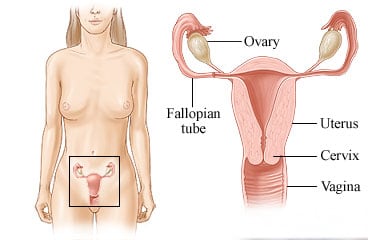
Overview
A tubo-ovarian abscess is a pocket of pus. It forms because of an infection in a fallopian tube and ovary. A tubo-ovarian abscess is most often caused by pelvic inflammatory disease (PID).
Your doctor will prescribe antibiotics to treat the abscess. A very large abscess or one that does not go away after antibiotic treatment may need to be drained. Sometimes surgery is used to remove the infected tube and ovary.
Follow-up care is a key part of your treatment and safety. Be sure to make and go to all appointments, and call your doctor if you are having problems. It's also a good idea to know your test results and keep a list of the medicines you take.
How can you care for yourself at home?
- Take your antibiotics as directed. Do not stop taking them because you feel better. You need to take the full course of antibiotics.
- Rest until you feel better.
- Take anti-inflammatory medicines to reduce pain. These include ibuprofen (Advil, Motrin) and naproxen (Aleve). Be safe with medicines. Read and follow all instructions on the label.
- Use a hot water bottle or a heating pad set on low for belly pain.
- Do not have sex or use tampons (use pads instead) until you have taken all the medicine, your pain is gone, and you feel completely well.
- Talk to any sex partners you have had in the past 2 months. They need to be tested and may need to be treated for a sexually transmitted infection (STI).
When should you call for help?
Call 911 anytime you think you may need emergency care. For example, call if:
- You passed out (lost consciousness).
Call your doctor now or seek immediate medical care if:
- You have a new or higher fever.
- You have unusual vaginal bleeding.
- You have new or worse belly or pelvic pain.
- You have vaginal discharge that has increased in amount or smells bad.
- You are dizzy or lightheaded, or you feel like you may faint.
- You have symptoms of sepsis, such as:
- Shortness of breath.
- Feeling very sick.
- Severe pain.
- A fast heart rate.
- Cool, pale, or clammy skin.
- Feeling confused.
- Feeling very sleepy, or you are hard to wake up.
Watch closely for changes in your health, and be sure to contact your doctor if:
- You do not get better as expected.
Where can you learn more?
Go to http://www.healthwise.net/patientEd
Enter V246 in the search box to learn more about "Tubo-Ovarian Abscess: Care Instructions".
Current as of: May 5, 2025
Author: Ignite Healthwise, LLC Staff
Clinical Review Board
All Ignite Healthwise, LLC education is reviewed by a team that includes physicians, nurses, advanced practitioners, registered dieticians, and other healthcare professionals.

